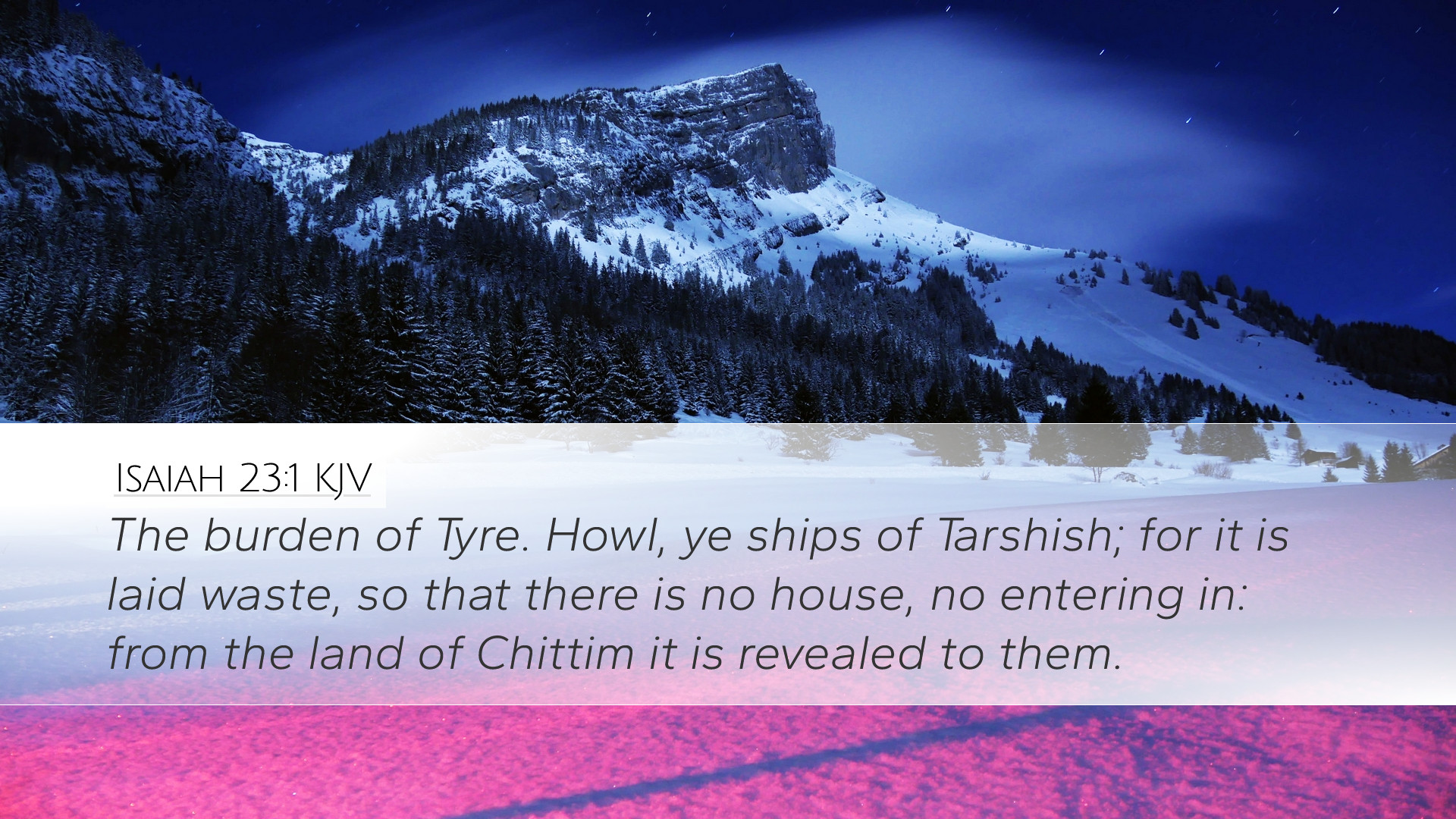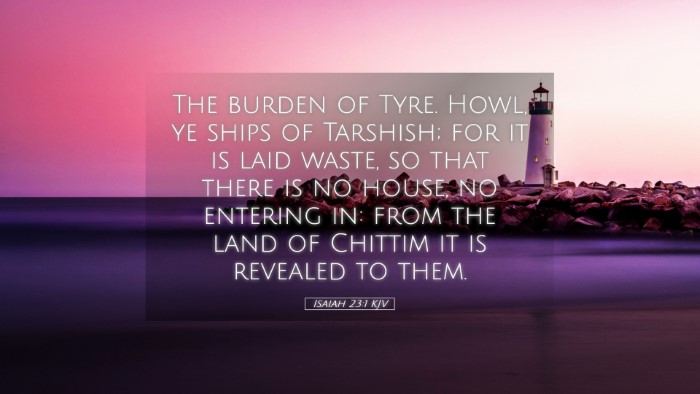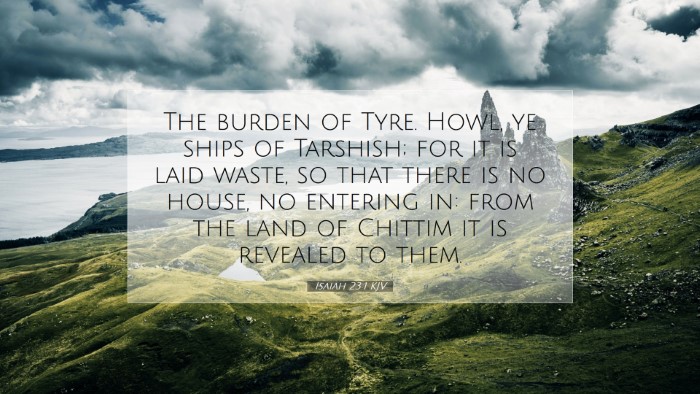Commentary on Isaiah 23:1
Verse: "The burden of Tyre. Howl, ye ships of Tarshish; for it is laid waste, so that there is no house, no entering in: from the land of Cyprus it is revealed to them."
Introduction
The prophetic announcement concerning Tyre unfolds a tale of judgment and devastation, calling the surrounding nations to witness the forthcoming calamity. Tyre, known for its opulence and as a hub of maritime trade, held significance in the ancient Near East. This chapter vividly describes the fall of Tyre, which serves as a motif of God's judgment against pride and arrogance.
Authorship and Context
Isaiah, the prophet during a tumultuous period for Israel and Judah, entwines national and international themes in his oracles. The prophecy against Tyre is likely situated amid tensions between Israel and neighboring powers as well as the ongoing geopolitical shifts in the region.
Verse Analysis
1. The Burden of Tyre
“The burden of Tyre” highlights the serious nature of this prophecy. The term “burden” implies a heavy, weighty message that comes with the responsibility of declaring impending doom. Tyre is often portrayed as a powerful city, symbolizing human pride and economic strength.
2. Howl, Ye Ships of Tarshish
“Howl, ye ships of Tarshish;” signifies a call to mourning. Tarshish represents distant trade routes, indicating that even those who are economically intertwined with Tyre will feel the repercussions of its downfall. The ships of Tarshish symbolizes wealth and commerce, which are rendered useless in the face of divine judgment.
3. For it Is Laid Waste
The proclamation that Tyre “is laid waste” serves to underline the totality of destruction that has come upon the city. The image of devastation – “no house, no entering in” – conveys a sense of desolation, as if all life and vibrancy have ceased to exist. This stark imagery exemplifies the seriousness of God’s judgment against prideful nations and their inevitable consequences.
4. From the Land of Cyprus It Is Revealed to Them
The mention of Cyprus indicates the broader geopolitical implications of Tyre's downfall. News of Tyre's destruction reaches distant lands, emphasizing that God’s judgment is not localized but resonates across nations. This foreshadows that God's authority extends beyond Israel to all nations.
Theological Themes
- Judgment Against Pride: The destruction of Tyre serves as a reminder that all earthly kingdoms, regardless of their might, are subject to divine authority.
- The Fragility of Commerce: The cry of the ships symbolizes how the economic stability tied to human endeavors crumbles when faced with divine will.
- Global Implications of Local Judgments: God's decrees echo beyond the immediate context, reflecting His sovereignty over all creation.
Historical Context
Tyre was a formidable city-state, known for its wealth, maritime power, and as a city of refuge and commerce. However, its pride led to moral decay. The Assyrian threat during Isaiah's time and the ultimate conquest by Babylon presented a historical backdrop to this prophecy. The merchants of Tyre became collaborators in sin, leading to their eventual judgment.
Reflections from Public Domain Commentaries
Matthew Henry
Henry emphasizes the symbolic weight of Tyre as a representation of worldly pride and the ultimate futility of reliance on material strength. He explains that God’s judgment is often swift and exhaustive, leaving no illusion of safety for those who have placed their trust in earthly endeavors.
Albert Barnes
Barnes notes that Isaiah’s burden is not just against Tyre but serves a warning to all nations that arrogance leads to downfall. He underscores the idea that the “howl” extends beyond mere lamentation – it is an acknowledgment of the consequences that come from defying divine order.
Adam Clarke
Clarke offers a nuanced examination of the geographical and economic significance of Tyre, interpreting the verse as a foreshadowing of the shifting powers in the region. He highlights the importance of heeding such warnings, both personally and communally, as they reflect God's overarching plan and authority.
Conclusion
Isaiah 23:1 stands as a stark reminder of divine judgment and the frailty of human pride. As Tyre's strength crumbles, those who engage in its commerce are called to mourn—not just for Tyre but for the acknowledgment of their own vulnerabilities. The prophetic voice invites pastors, students, and theologians to reflect on the significance of God's judgment and the reality of a world that often forgets its dependence on divine sovereignty.


